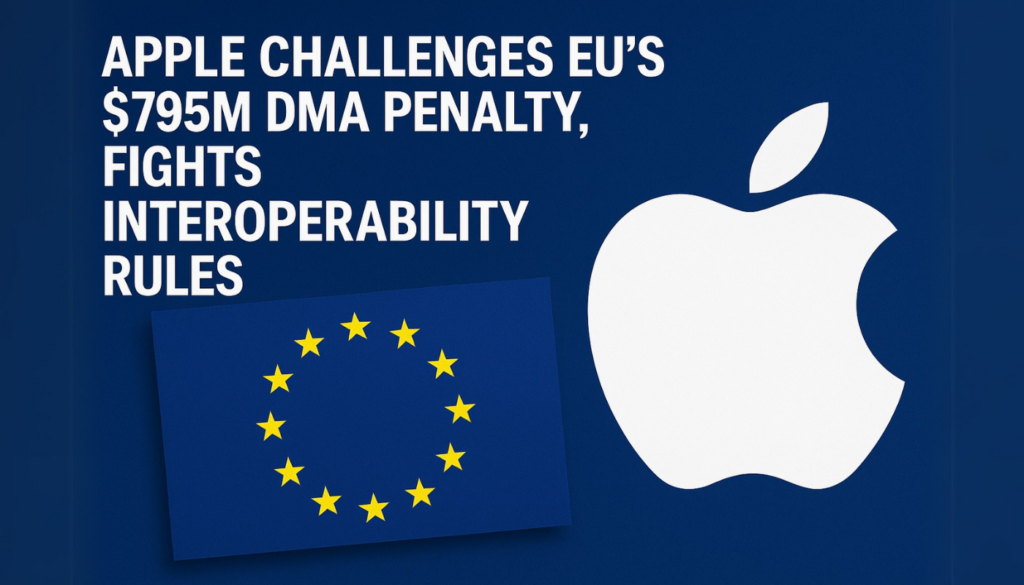Apple Inc. (NASDAQ:AAPL) has formally filed an appeal with the European Commission to challenge the Digital Markets Act (DMA) mandates requiring it to share sensitive user data with third-party developers. The move, reported by Axios, highlights the deepening rift between the tech giant and European regulators.
The DMA, a cornerstone of the EU’s efforts to rein in big tech, imposes interoperability rules that Apple argues undermine its intellectual property and compromise user privacy. The company’s appeal focuses on rules compelling it to grant access to critical features previously exclusive to Apple’s ecosystem.
- Apple contests EU’s interoperability mandates
- DMA rules target user data sharing with rivals
- Privacy and IP concerns central to appeal
Interoperability Concerns
The EU’s interoperability requirements under the DMA compel Apple to share functionalities like WiFi pairing details and notifications with non-Apple devices, including smartwatches and headsets. These changes are aimed at leveling the playing field for third-party developers and reducing Apple’s control over its ecosystem.
Apple has long resisted such demands, citing risks to user privacy and its proprietary technology. In April, the company, along with Meta Platforms (NASDAQ:META), was fined a total of €700 million ($795 million) for DMA violations involving data sharing practices.
However, the fines were notably lighter than many analysts expected, signaling a possible recalibration of the EU’s enforcement approach. Some speculate this shift stems from concerns about provoking the administration of former U.S. President Donald Trump.
- DMA fine for Apple and Meta: $795 million
- Interoperability rules affect non-Apple device compatibility
- Potential softening of EU’s regulatory stance
What’s Next for Apple and the EU?
Apple’s appeal could significantly shape the future of digital regulations in Europe. The case underscores the complex balancing act between fostering competition and safeguarding intellectual property and privacy.
The EU’s DMA aims to open up digital ecosystems, but its broad mandates have sparked legal and political pushback from U.S. tech firms. Apple’s challenge may set important precedents for how far regulators can go in forcing platform interoperability.
With the next stages of the DMA rollout expected in the coming months, all eyes are on how the European Commission responds. The outcome could redefine the dynamics between major U.S. tech players and European regulators.
- Key focus: balancing competition with privacy rights
- Upcoming DMA developments could reshape digital markets
- Apple’s challenge likely to influence future EU policies


